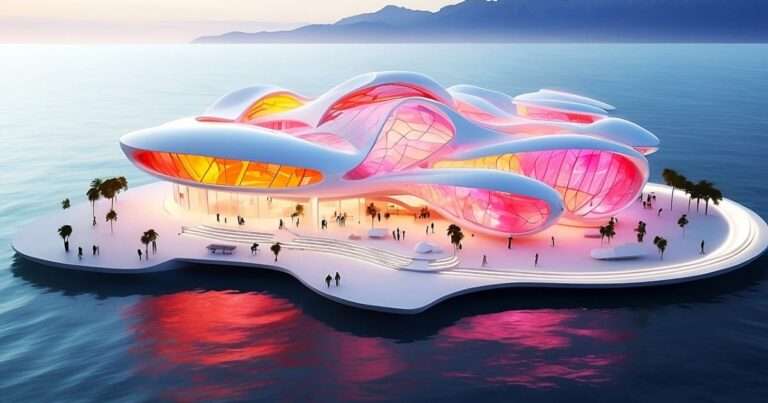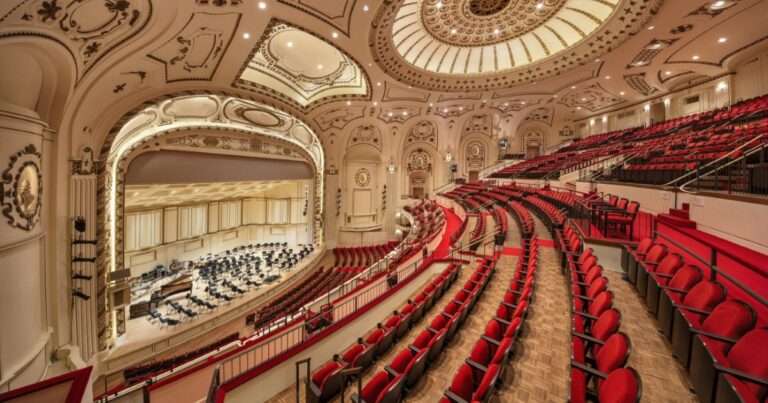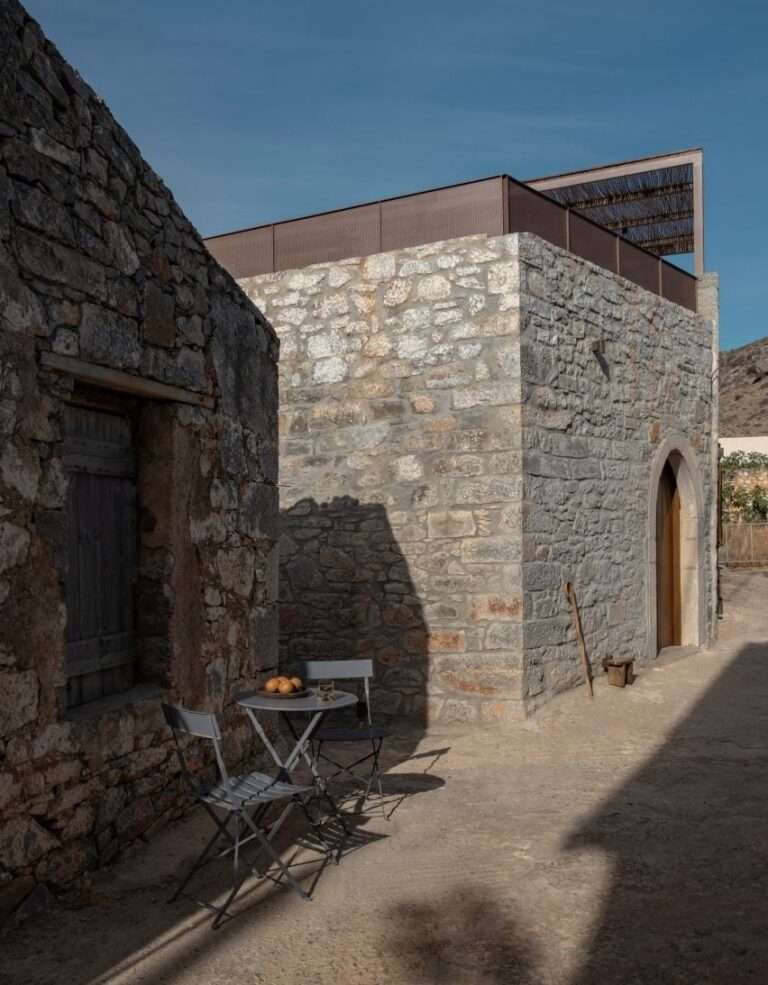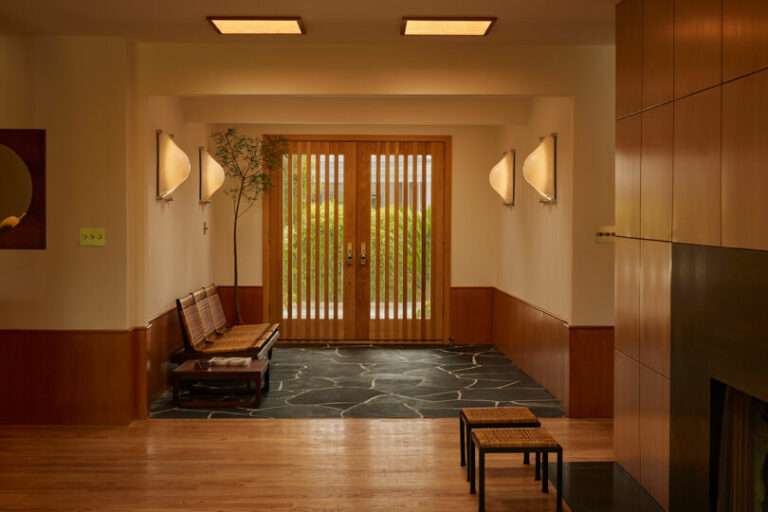‘Living Breakwaters’ by SCAPE Landscape Architecture Wins the 2023 Obel Award
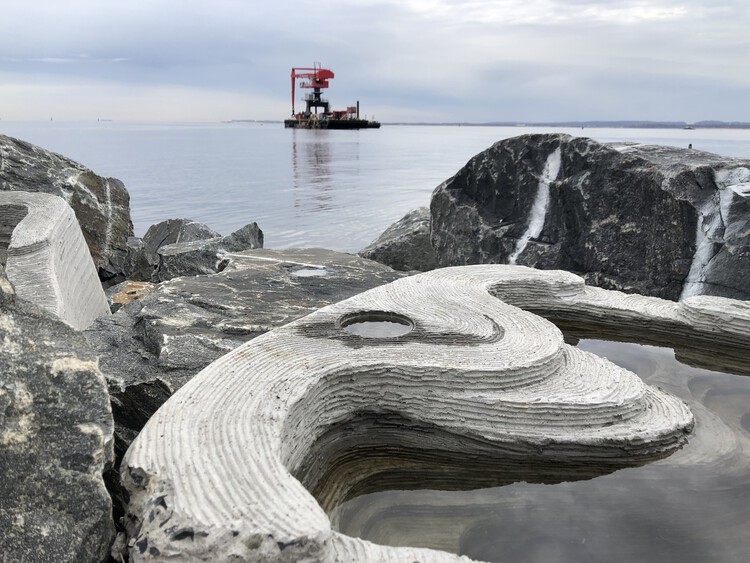
Focused in its fifth edition on Adaptation, the Obel Award has been granted to ‘Living Breakwaters’ in New York, a green infrastructure project off the shore of Staten Island. Awarded to SCAPE Landscape Architecture and its founder Kate Orff, masterminds behind ‘Living Breakwaters’, the yearly prize honors architectural contributions that positively impact both people and the planet.
The Obel Award is an international prize for architectural achievement presented annually by the Henrik Frode Obel Foundation, and each year, the jury sets a focus and awards a potential solution. Previously, it recognized Seratech, a carbon-neutral concrete solution, as the 2022 Obel Award winner, while in 2021, the concept of the 15-minute city received the prize for its value in creating sustainable and people-centric urban environments. The award ceremony will take place at the Sydney Opera House on 21 October 2023, and the winner will receive a prize sum of EUR 100,000 and a unique work of art by artist Tomás Saraceno as a trophy.



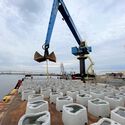


‘Living Breakwaters’ was initially developed for Rebuild by Design, a design competition led by the U.S. Department of Housing and Urban Development (HUD) after Superstorm Sandy, by a large, multi-disciplinary team led by SCAPE. The project is “designed to break waves, reduce (and eventually reverse) erosion of the shoreline, and provide a range of habitat spaces for oysters, fin fish, and other marine species.” Consisting of 2,400 linear feet of near-shore breakwaters, along the south shore of Staten Island in New York, built of stone and ecologically-enhanced concrete, the green infrastructure includes a variety of features that will provide diverse habitat spaces for marine species like oysters, fin fish, and various marine species. Oysters play a significant role in the artificial reef design, with their population expanding over time, leading to denser breakwaters that offer increased shoreline protection.
Related Article
Seratech, a Solution for Carbon-Neutral Concrete Wins the 2022 Obel Award
Reducing risk, reviving ecologies, and connecting people to the shoreline, Living Breakwaters “has involved nearly a decade of educational and engagement-related programming designed to advance community stewardship, citizen science, and recreation along the water’s edge.” The project is expected to be completed in 2024.
 Courtesy of SCAPE
Courtesy of SCAPEBreakwaters is an ancient idea for how to protect shorelines – and the people who live close to them – by building underwater seawalls to defend a harbour or a beach from the force of waves. Kate has designed an extraordinary, modern-day interpretation, the Living Breakwaters, which will not only protect humans and revitalize the coastline of New York City, but also restore lost marine biodiversity. This is a visionary project that tackles the full task of adaptation, and which has the capacity to inspire and to positively impact vulnerable shorelines worldwide. — Martha Schwartz, Chair of the OBEL AWARD jury.
 Courtesy of SCAPE
Courtesy of SCAPEThe 2023 Jury included the following members:
- Martha Schwartz (chair of the jury)/ MARTHA SCHWARTZ PARTNERS
- Kjetil Trædal Thorsen/ SNØHETTA
- XU Tiantian/ DNA _DESIGN AND ARCHITECTURE
- Dr. Wilhelm Vossenkuhl/ Prof. em. Ludwig-Maximilians-Universität München
- Sumayya Vally/ COUNTERSPACE
- Louis Becker/ HENNING LARSEN ARCHITECTS
- Aric Chen/ NIEUWE INSTITUUT
 Courtesy of SCAPE
Courtesy of SCAPEScape is a “landscape architecture and urban design practice revealing the ecological and cultural potential of the built environment”, based in New York with offices in New Orleans and San Francisco. The firm’s collaborative leadership team includes Kate Orff, FASLA, RLA, Founding Principal; Gena Wirth, RLA, Design Principal; Alexis C. Landes, Managing Principal; John Donnelly, RLA, Technical Principal; and Pippa Brashear, RLA, Resilience Principal. Kate Orff, Founding Principal of SCAPE, is a pioneering figure in landscape architecture, notably becoming the first landscape architect to be awarded the MacArthur Foundation’s ‘Genius Fellowship in 2017, and the first landscape architect to be featured on TIME’s 100 Most Influential People in 2023. In addition, in 2019, Kate Orff was elevated to the American Society of Landscape Architects (ASLA) Council of Fellows, a prestigious honor within the field, recognizing her significant contributions as a landscape architect in the United States.
In a recent collaboration, SCAPE Landscape Architecture, along with Studio Gang, revitalized the Memphis Riverfront by transforming the 31-acre Tom Lee Park into a model of restored natural urban park ecology. This project is now open to the public, offering a versatile space for gatherings, art installations, play, and relaxation. Moreover, the firm has contributed to the newly transformed Arkansas Museum of Fine Arts in Little Rock, U.S., designed also by architecture practice Studio Gang in collaboration with Polk Stanley Wilcox. Finally, known for its contemporary approach that harnesses the potential of technological advancements to revive and reimagine landscapes from the past, centered on indigenous and regenerative technologies, re-wilding, and circularity, SCAPE’s work embraces the unique characteristics and historical context of each new site of action. In fact, “the firm advocates for a more considerate, conservation-focused, and interconnected approach to landscape architecture and design.”
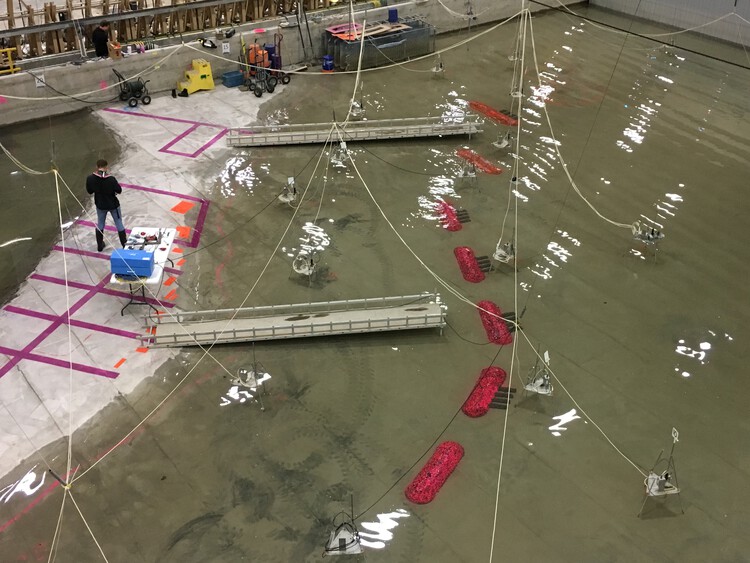
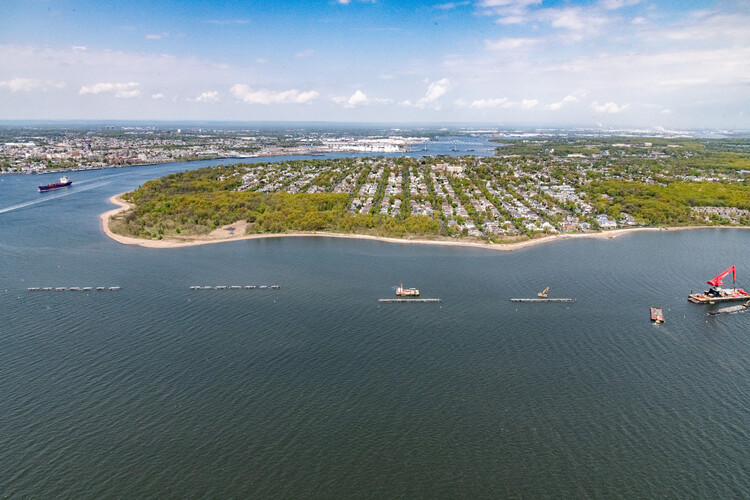
Read on for the official Jury Statement.
The ecological and social responsibilities of architecture have been a major focus of the Obel Award since its founding in 2019. The theme established by the jury for 2023 is ADAPTATION, which refers to the necessity and possibilities of architecture to adapt to a world in flux. The ecosystems, landscapes, and human structures and systems that were once intertwined with architectures of permanence can no longer be taken for granted. Instead, adaptation calls for an architecture that confronts uncertainty and acts through time so that both human and non-human life can continue to survive and even thrive.
The 2023 winning project, Living Breakwater, provides a real alternative to the walls, levees, and barriers so often built in our coastal waterways and oceans seeking to defend us from the ravages of human-induced climate change. Living Breakwaters adheres to a different worldview in which natural systems are valued for their protective benefit. With the project, SCAPE and its founding principal Kate Orff put forward a drastically different concept of adaptation in the built environment that operates on several scales, increasing both physical, ecological, and social resilience, and activates both human and non-human life in the design process.
The physical design of Living Breakwaters is an ingenious mix of natural and carefully modeled artificial elements that mimic naturally occurring reef formations in order to support marine life. It is a strongly science-based approach, an attempt to design to stimulate and collaborate with nature. With time, oysters and other underwater organisms will adhere to the designed structures and strengthen them and their ability to protect the shore, thus blurring the lines between nature and design. Living Breakwaters also acknowledges that climate adaptation requires people to be on board. Humans have an active role in the adaptation process in Living Breakwaters, and Kate and her team are especially adept at motivating people and communities to become stewards of their local environment.
Architecture must recognize its ecological and social responsibilities. Living Breakwaters does exactly that. As such, this relatively low-cost, low-tech response provides a seminal example of how to design not against but with nature in adapting to the changes that lie ahead.
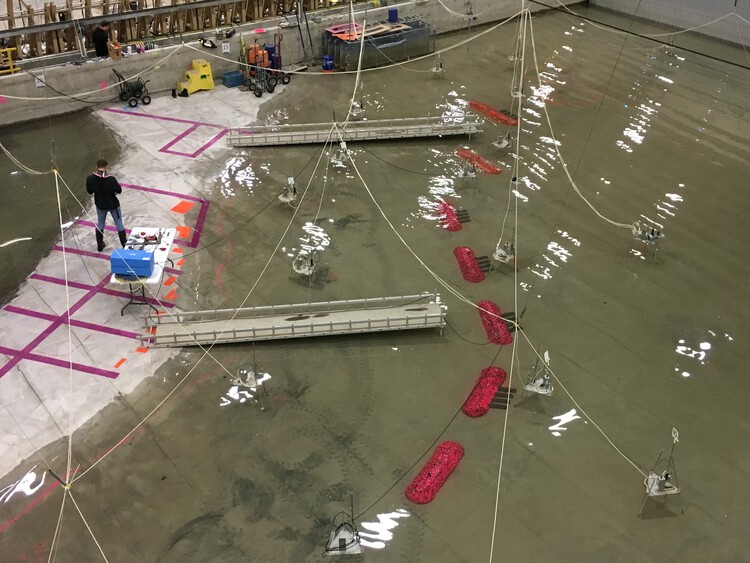
Living Breakwaters Team
Client: NYS Office of Resilient Homes and Communities (RHC)
Collaborators
- COWI (Design Team)
- Arcadis (Design Team)
- SeArc Ecological Marine Consulting (Design Team)
- WSP (Design Team) MFS Engineers (Design Team)
- Prudent Engineering (Design Team)
- The Billion Oyster Project (Engagement)
- Weeks Marine (Construction Contractor)
- Ramboll (Construction Management)
- Baird (Construction Management)
- AKRF (Environmental Review & Permitting)
